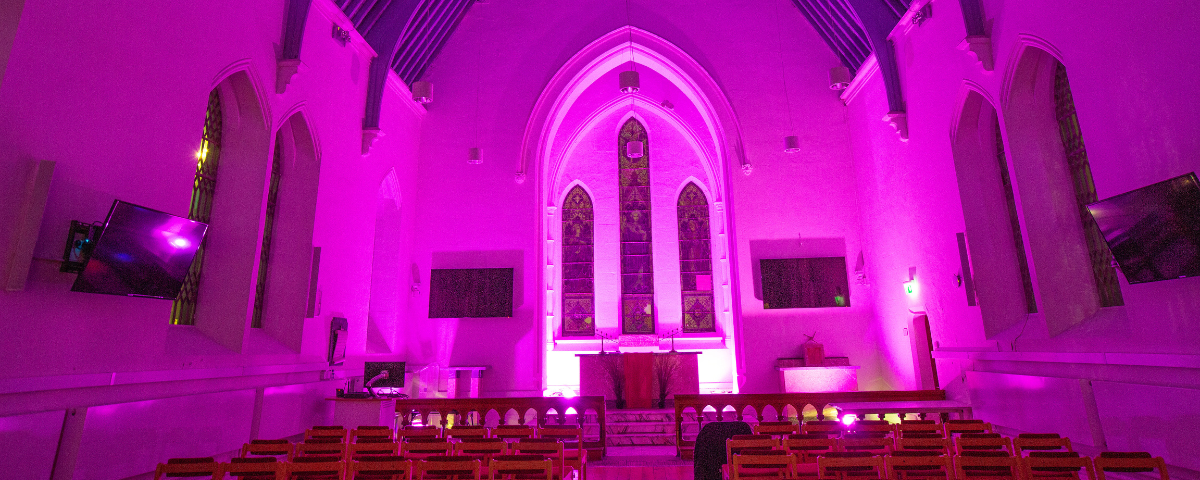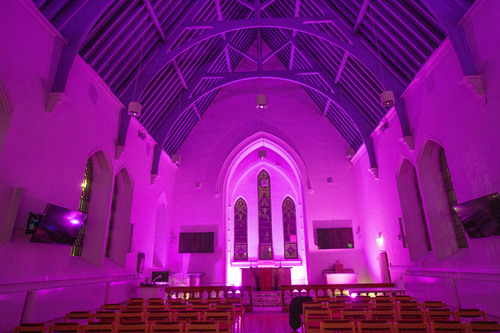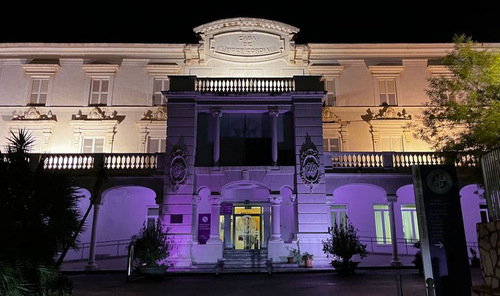Partners at EUt+ celebrate International Day of Persons with Disabilities
Published on December 8, 2022
–
Updated on December 9, 2022

Dates
on the December 8, 2022
The International Day of Disabled Persons on Saturday, December 3rd aims to promote an understanding of disability issues and mobilise support for the dignity, rights and well-being of persons with disabilities. It also seeks to increase awareness of gains to be derived from the integration of persons with disabilities in every aspect of political, social, economic and cultural life.
Over one billion people worldwide have some form of disability: that’s one in seven. Many of those disabilities are invisible, while others can affect any of us at any time in our lives.
#PurpleLightUp has been driving momentum for disability inclusion across many organisations, and EUt+ partners joined this initiative through lighting up their buildings, events and social media campaigns.
TU Dublin’s St. Laurence's Church on their Grangegorman campus lit purple as part of an event, as well as the Rectory at UPCT, Cartagena. h_da initiated a social media campaign with the support of their student advisory services team to draw attention to persons with disabilities and to raise awareness for students with disabilities and chronic illnesses and inform where they can get advice at the university.
TU Dublin’s St. Laurence's Church on their Grangegorman campus lit purple as part of an event, as well as the Rectory at UPCT, Cartagena. h_da initiated a social media campaign with the support of their student advisory services team to draw attention to persons with disabilities and to raise awareness for students with disabilities and chronic illnesses and inform where they can get advice at the university.

An inspiring story from UPCT telematics engineer, Juan Guillermo Carrasco, who has Duchenne muscular dystrophy.
He explains the possibilities for work and leisure offered by immersive reality programmes. Juan Guillermo Carrasco, a recent graduate in Telematics Engineering from the UPCT, believed that 3D glasses and immersive reality were technologies with little more use than video game entertainment. That was until the young engineer did an internship at the company Meta Ventures, testing applications related to the development of the metaverse to raise awareness on its usefulness in promoting the inclusion of people with disabilities. He discovered that the possibilities go beyond the professional sphere, also including the tourism sector, since immersive reality visits – such as the one developed by the UPCT for the museum of the Punic Wall in Cartagena –, "allow us to discover remote cities and spaces, such as archaeological caves, which we would find difficult to visit", says Juan. "The barriers that we find in the physical world disappear in the virtual world," he sums up.
Read the full article on UPCT's website (in Spanish)

Date of update 09 décembre 2022

